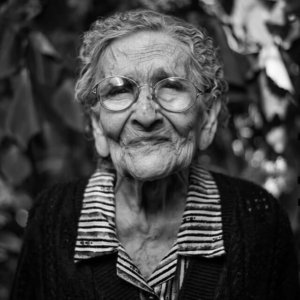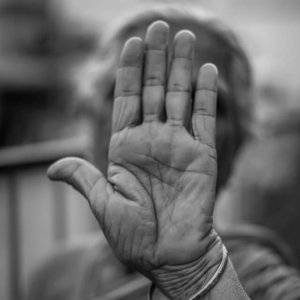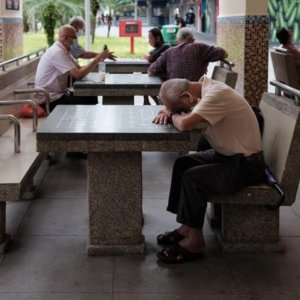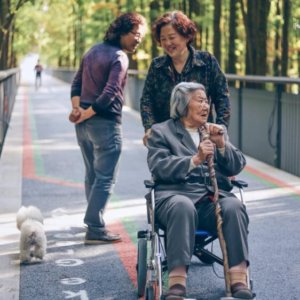How to claim agency in our old age
Do you claim agency?
No, I am not talking about a non-profit business that supports elders. I am referring to the power to make our own choices.
How we claim agency, how we use it and how we celebrate it makes a lot of difference in how healthy, happy and independent we will be as we grow older.
 Doris was 88 years old when I first met her in my job as a medication nurse at a long-term care facility. I would have been in my late 20’s and the job was my first as a recently divorced mother of two little, very active, boys.
Doris was 88 years old when I first met her in my job as a medication nurse at a long-term care facility. I would have been in my late 20’s and the job was my first as a recently divorced mother of two little, very active, boys.
I wearily pushed a heavy cart laden with drawers of pills all on separate cards. Across the top lay an open book to document every med I gave. (This was before computers!) and an assortment of tiny cups, spoons, applesauce, and an antique pill cutter.
Every two hours I worked my way down three long halls, concentrating on not making any errors. All would go as planned until I got to Doris who waited for me in her doorway with an outstretched hand as if I were the mailman.
 Taking her little cup of medications, she dumped all the pills into her palm and began examining each one, turning first the red one over and then holding the blue one up to her failing eyes.
Taking her little cup of medications, she dumped all the pills into her palm and began examining each one, turning first the red one over and then holding the blue one up to her failing eyes.
Slowly. Ever so slowly! She asked questions. She shared her opinions. And what seemed like hours later she would smile, nod slightly, and begin taking the pills. One at a time. Slowly.
Doris’s eyes twinkled and she smiled. “Thank you.” And with her head held high, she stepped back into her room as if it were her private estate. This lady knew how to claim agency!
When I returned to the desk where a group of nurses and CNAs had been watching, I looked up and said “When I am old I want to be exactly like Doris!” Aghast, they began to question my sanity.
“She is the only person in this building, including staff, who isn’t institutionalized. She has agency. She will be independent until the day she dies, even if she can’t do much for herself.”
What Does it Mean to Have Agency
Having agency is knowing who I am, what I want, where my boundaries are (and the boundaries of other people), and being willing to communicate my needs without feeling guilty.
When I claim agency I take responsibility for my actions and recognize myself as an independent person while also considering other people’s feelings and needs.
I am concerned when I watch someone age and surrender to family or community their wisdom, desires, and dreams because of failure to claim their agency. Why does this happen?
 When I lived out of state I had a neighbor, Frank, who was declining in health and needed a lot of assistance on a daily basis.
When I lived out of state I had a neighbor, Frank, who was declining in health and needed a lot of assistance on a daily basis.
He could not see the depth to which people looked to him for his insight, his sense of humor, and his patience.
Frank felt guilty because he slowed everyone up just navigating to the supper table. He refused to ask for help. He avoided the use of a mobility aid because he was embarrassed.
He thereby let go of the agency that he had lived with for 85 years.
He had been a man who made the decisions to be an engineer, to build a home, to wear flannel shirts and suspenders, and to spend vacations fishing. When Frank let go of the agency of asking for his needs and wants he became dependent and depressed.
Why do we let go of our agency?
Why Frank let go of his agency came down to one thing. Fear.
 “I’m afraid of what people will say if they see me in a wheelchair. I am afraid I am too old to be any use now. I’m afraid of being a burden on others.”
“I’m afraid of what people will say if they see me in a wheelchair. I am afraid I am too old to be any use now. I’m afraid of being a burden on others.”
Slowly he began to let go of all the things he could do because he was afraid of all the things he could no longer handle alone. And he began to live in fear.
Frank was kind by nature and he may have thought he was being nice in keeping still about his wants and needs, forgetting that nice people can ask without being demanding. He didn’t realize the possibilities that exist with interdependence.
Besides fear, he may have been weary. Sometimes we just feel too tired to make a decision. “You decide what’s for supper. I can’t think.”
Holding on to agency despite the loss
Doris remained independent until the day she died.
In time she lost the ability to stand at the door but she never lost the ability to choose if and how she would take her meds.
Doris had self-respect and autonomy.
The rushed impersonal demands of institutional living did not rob her of that. And she continued to teach what it means to be independent by remaining autonomous and directive about her own care.
And she remained kind through it all.
In Summary
We don’t have much choice about growing older or even experiencing frailty and/or disability.
What we do have is a choice about whether we will retain our autonomy in the proces.
My plan is to follow in Doris’s footsteps, using my sense of agency to explore all my options as I age into my rusty years.
May the world grow in its understanding and acceptance of what may seem like stubbornness in an impatient moment, and celebrate the agency that is a sign of life in the midst of loss.
Would you like some tips on
how to have a happy old age?
Press the red button!
[Photo Credits from Unsplash: raised-hand-saying-stop-by-sai-balaji-varma-gadhiraju; old-lady-with-kind-face-by-danie-franco; man-with-head-down-by-galen-crout; lady-in-wheelchair-by-raychan]



Terrie Mourningdove
This was very helpful to me Ardis. I have never heard anyone use the word Agency before. Do you use it in the same way you would use the word Authority?
I seem to relate more to the way you describe Frank, in thinking that I don’t want to be a bother to anyone. But it doesn’t contribute much to my happiness. I know I have a Doris in me and appreciate your incouragement in this article to be more like her.
I like the term Rusty Years. It has a bit more dignity than the one I’ve be using, ‘Falling Apart’ years.
I really like this article Ardis. Thank you so much.
Ardis Mayo
I am glad you found this helpful. Yes, one might think of agency as a type of personal authority. I use the term rusty with tenderness for an old rusty truck I had years ago which, although it looked pretty frail, carried all manner of loads faithfully over many miles. I want to be like that truck. I can’t help but believe it is still on the road somewhere.
Ellen Sweeney
I definitely want to be like Doris. My Mom was more like Frank. Never wanted to ask or even need help. Didn’t want to wear oxygen because she was a little vain. Thanks for sharing this article.
Ardis Mayo
You are welcome, Ellen. There comes a time when I think we all wonder who we will become given difficult circumstances. Setting intentions early gives us the opportunity to practice who we hope to be when life bets difficult.
Della Gleason
Thank you Ardis! I aspire to be a “Doris”, and hope I can stay in control of my life til the end.
Ardis Mayo
I believe our desires and intentions held with a gentle grasp, will be honored regardless of the the challenges we meet in life….which is to say I am certain your will be a ‘Doris!’
Steve Fiksdal
We worry too much about what others think. Others’ thoughts are their own. We usually don’t know what their thinking. We need to focus on what we’re thinking. How do we view ourselves.
In terms of accepting help – I was once in a busy multi-level transit center, contemplating which escalator to use. A nice lady asked if I needed help and offred to guide me to where I wanted to go. Being male and independent I said no, when I did need help. She walked away feeling a little dejected. Sometimes we can brighten someone else’s day, by accepting assistance even if we don’t need it.
Ardis Mayo
Thank you, Steve. A wise observation. I once had a woman say to me when I was resisting help from a group of people, “please don’t take away our opportunity to give.” It gave me a different understanding of ‘calling’.
Bonnie
I also appreciated the article as a reminder that we ALWAYS have a choice, even when it’s limited. I also think it’s helpful to remind ourselves that this life on earth is about learning. Considering what I might have a chance to learn more about in a given situation can help us make the most soul-useful choices.
Ardis Mayo
Thank you, bonnie for your wise words and insight about learning being lifelong. Might we say it is one of the indicators of Life?